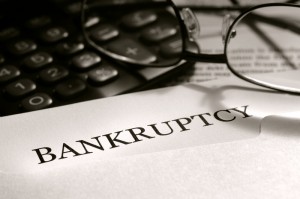 Chapter 7 bankruptcy requires that the bankruptcy filer complete a means test. The means test is basically a formula for calculating disposable income. Debtors list all income received during the six months prior to filing bankruptcy, excluding funds paid by the Social Security Administration. The average for the six months is called current monthly income. If the debtor’s current monthly income is below the median income for his household size in the region in which he lives, then he doesn’t have to fill out the rest of the means test. He automatically qualifies for Chapter 7 discharge under the means test.
Chapter 7 bankruptcy requires that the bankruptcy filer complete a means test. The means test is basically a formula for calculating disposable income. Debtors list all income received during the six months prior to filing bankruptcy, excluding funds paid by the Social Security Administration. The average for the six months is called current monthly income. If the debtor’s current monthly income is below the median income for his household size in the region in which he lives, then he doesn’t have to fill out the rest of the means test. He automatically qualifies for Chapter 7 discharge under the means test.
Debtors with above-median income must go on to complete the remaining sections of the means test. The next step is to calculate deductions. The means test uses standard IRS deductions. These deductions include expenses for housing, operation of a vehicle, ownership/lease expense for a vehicle, medical expenses, etc. The debtor can also take additional deductions based upon his actual expenses, for premiums for life insurance, medical insurance, disability insurance, payments to secured creditors during the sixty months following the filing date, and several other expenses. Once the deductions are calculated the total is subtracted from the current monthly income, and the resulting number equals monthly disposable income.
When a debtor has too much disposable income there is a presumption of abuse. The idea is that a debtor should be required to pay the creditors listed in the schedules if they have enough disposable income to allow them to make meaningful payments to the creditors. However, the presumption of abuse can be rebutted in cases where the debtor’s current income (not current monthly income) is substantially less than the average for the last six months. If the debtor’s income is less than the current monthly income, and there is no reason to believe that it will increase in the near future, then the debtor can testify to this information during the 341 meeting of creditors, and if the U.S. Trustee is satisfied that the presumption of abuse has been rebutted, the debtor will receive a discharge.